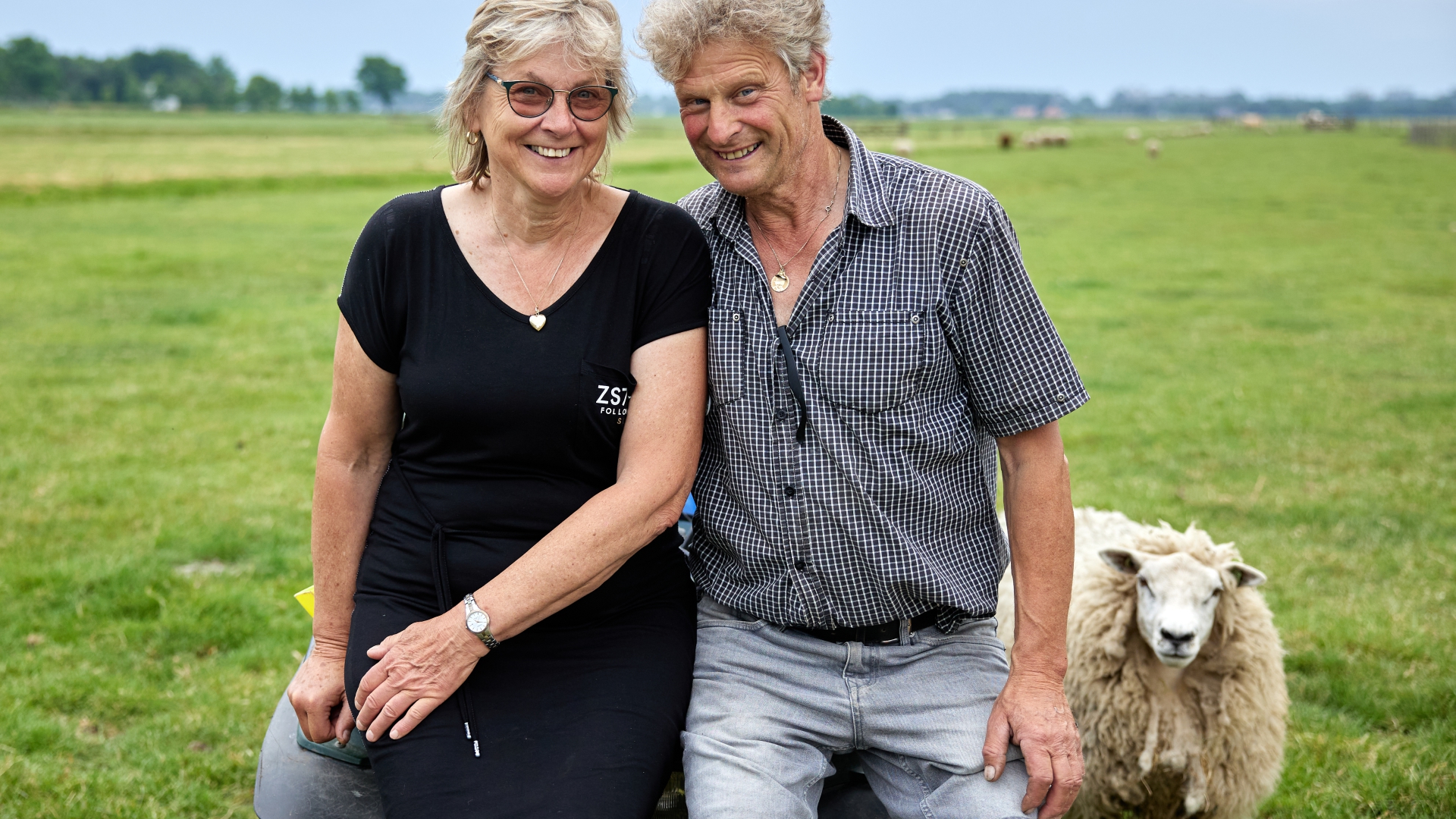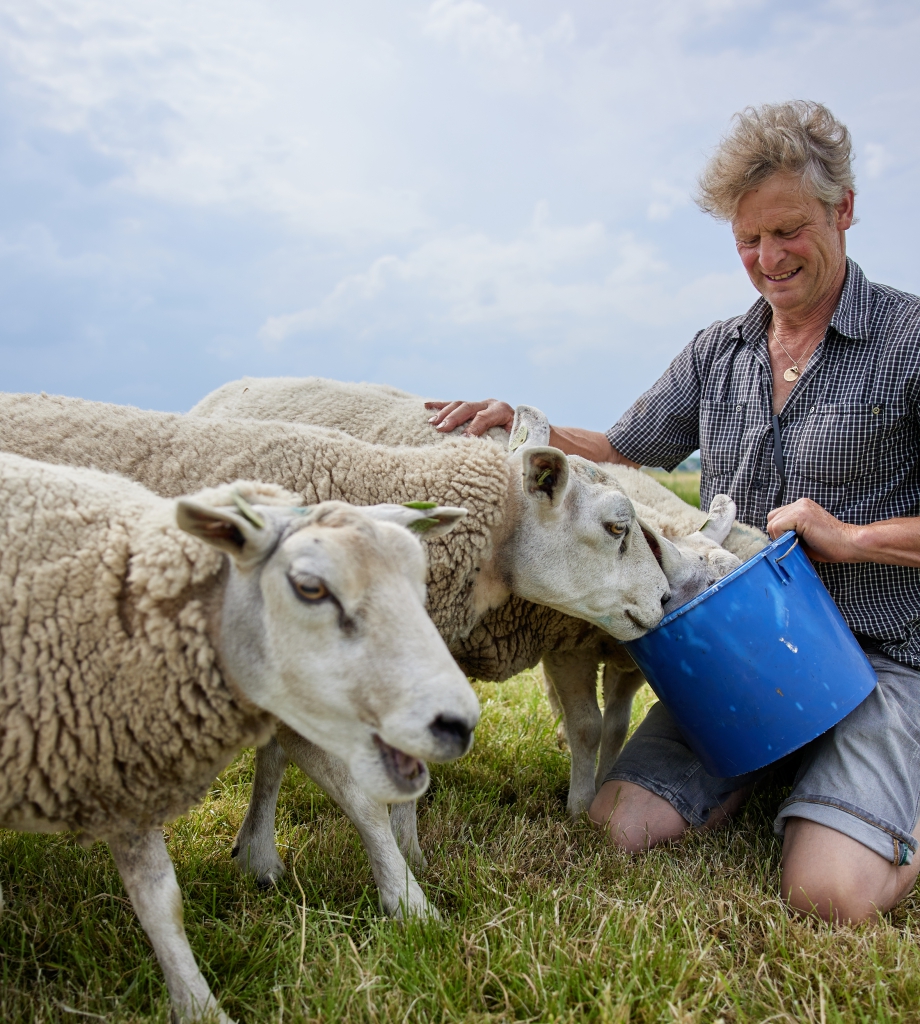Frank and Els Wennekers

In the ancient Dutch peat meadows around the village of Hobrede in North Holland, Frank Wennekers has made his dream come true: a thriving business that combines livestock farming and wildlife management. Here, the sheep and Blonde d’Aquitaine cattle share the meadows with twittering godwits, lapwings, redshanks, oystercatchers, meadow pipits and skylarks.
Frank Wennekers was born and raised on a farm in Aalsmeer as the youngest son in a family of eleven children. As soon as he got home from school, he would jump on the tractor with his father. However, when Frank was eleven, his father was killed in an accident. “From that day on, milking the cows was up to me and my brothers,” he recalls. In time-honoured tradition, his oldest brother took over the family business. Unable to afford his own farm, Frank chose a different profession: he became a fireman.
Full-time farmer
In 1978, Frank joined the Amsterdam fire service and bought a house in Beemster that came with seven hectares of land. “I started out as just a hobby farmer with a few sheep and cows.” Later, he moved to Hobrede. Over the years, he acquired several pieces of land in the polders surrounding this small village. He now has 30 hectares of his own land and 20 more hectares of leased land. Frank uses a quad bike to reach the two hundred sheep and lambs and fifty Blonde d’Aquitaine cows and calves scattered across various locations. “I left the fire service in 2011 and became a full-time farmer. My wife, Els, manages our other business activities, like the meeting space and our holiday cottage, and she helps me with the administration and so on.


Frank knew he had to stand out if his small-scale business was going to be successful. He consciously chose to use extensive agricultural practices and joined a farmers’ cooperative that promotes nature conservation and sustainable agriculture. Not long after, when his farm was big enough, he switched to organic farming. You’ll find relatively few cows and sheep on his herb-rich pastures: “The meadow birds are mostly left in peace. However, sheep and cows are actually necessary for meadow bird conservation. Their manure attracts flies, which are food for the chicks.” By employing a variety of additional measures, such as wetland fields and managed hay meadows, Frank is creating habitats that are as welcoming as possible for meadow birds. This effort was rewarded in 2019 when he received the Gouden Grutto (Golden Godwit), an award given to farmers who have made significant contributions to meadow bird conservation. “I don’t count the nests on all my plots, but on the one and a half hectares where I did count, I had forty nests. That’s a huge number!”
Frank and Els Wennekers’ nature-inclusive farm is a registered show farm and educational facility. “We host students from the Vonk Agricultural School,” Frank explains. “The curriculum is aimed at helping them make the shift to nature-inclusive thinking and working practices. Their parents often own large-scale, intensive agricultural operations, so the first thing students often ask is, ‘Can I make a living from organic farming?’ I tell them they can if they minimise costs as much as possible. I reduce my expenses by using a closed-loop system: I use only my own manure, all my forage comes from my own land and I’ve planted reeds along the ditches to use as bedding in the barn. Artificial fertiliser does make the crops grow much faster, but it’s about whether the returns are higher than the cost. You can’t blindly follow the advice of the feed and fertiliser suppliers. If you dare to experiment and stay curious and alert, you’ll make great strides.”
